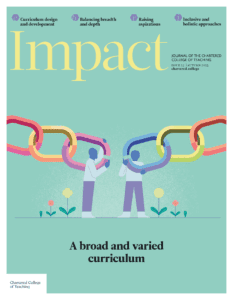HANNAH HAWOLDAR, NEURODIVERSITY AND INCLUSION EDUCATOR
Introduction
The significance of student wellbeing for school engagement and attainment is increasingly recognised, with research indicating that students who enjoy school and feel that they belong have better mental health, higher academic self-efficacy and improved outcomes (Brooks, 2014). School-related anxiety can negatively affect engagement, information processing, performance and attendance (Castagna et al., 2021; Finning et al., 2019), highlighting the crucial link between how learners feel about school and curriculum access. Neurodivergent learners are disproportionately affected by exclusion, peer victimisation and higher levels of school-related stress (Connolly et al., 2023). Research consistently indicates that many neurodivergent learners are unhappy and feel misunderstood at school. There is a clear need to better understand neurodivergent learners’ experiences to ensure equitable access to the curriculum. Th
Join us or sign in now to view the rest of this page
You're viewing this site as a guest, which only allows you to view a limited amount of content.
To view this page and get access to all our resources, join the Chartered College of Teaching (it's free for trainee teachers and half price for ECTs) or log in if you're already a member.











